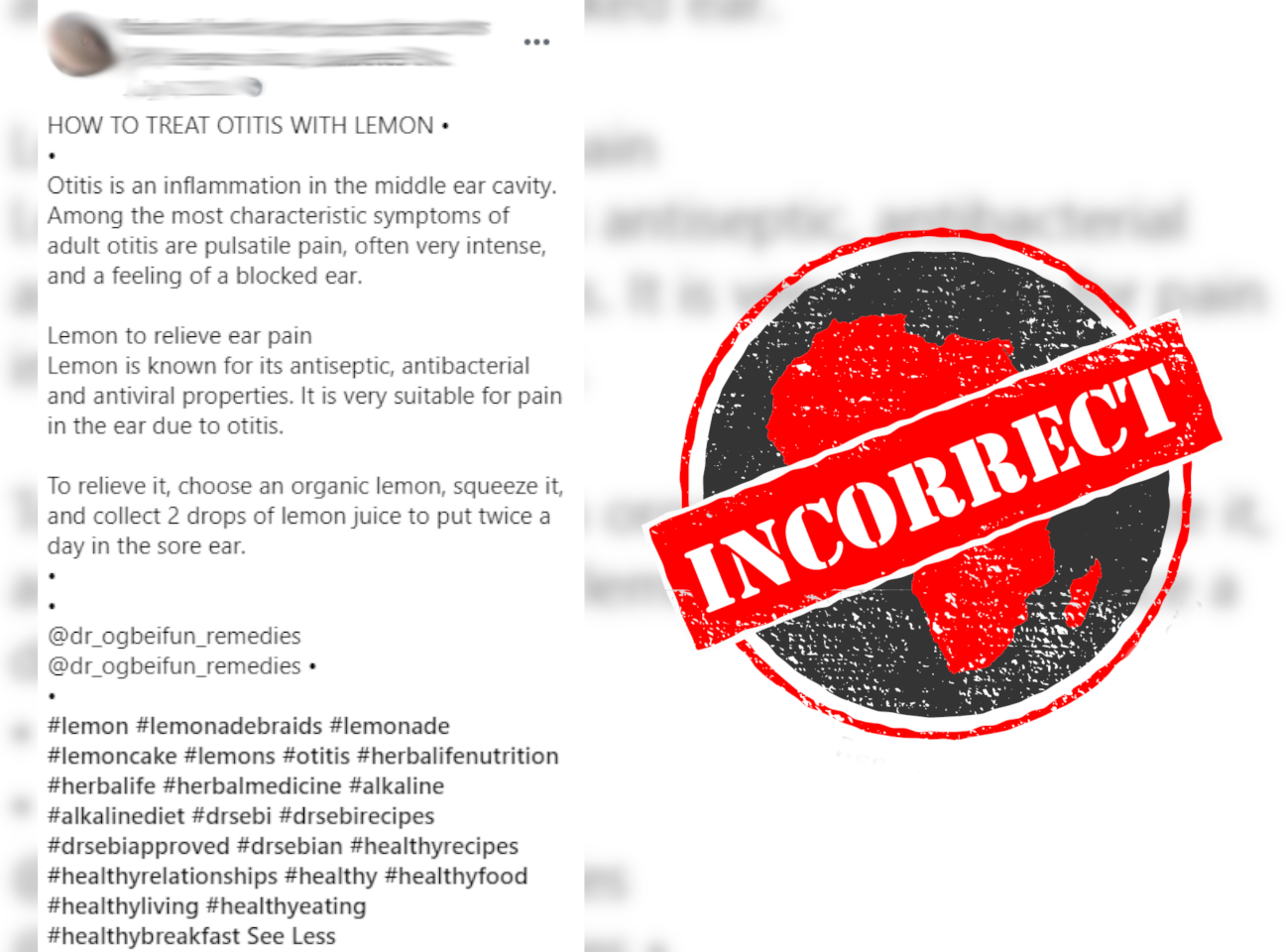A message posted on Facebook in Nigeria claims that the “antiseptic, antibacterial and antiviral properties” of lemon juice will cure ear problems known as otitis.
“HOW TO TREAT OTITIS WITH LEMON,” it begins.
“Lemon is known for its antiseptic, antibacterial and antiviral properties. It is very suitable for pain in the ear due to otitis. To relieve it, choose an organic lemon, squeeze it, and collect 2 drops of lemon juice to put twice a day in the sore ear.”
Otitis media is inflammation or infection located in the middle ear. It can occur as a result of a cold, sore throat, or respiratory infection.
But can lemon juice be used to treat otitis?

Not scientifically proven
“It makes no sense to me. The claim is wrong. Lemon juice is not a treatment for otitis media,” Samuel Adoga, a professor of ear, nose, throat, head and neck surgery at Nigeria’s University of Jos told Africa Check.
“My advice to anyone battling with this issue is to see an expert – an ear, nose and throat doctor. Treatment may begin with managing pain and monitoring the problem. Sometimes, antibiotics are used to clear the infection.”
Adoga said a specialist ear, nose and throat doctor might recommend surgery, if the patient’s infection didn’t respond to treatment or if the patient had recurrent ear infections.
Republish our content for free
For publishers: what to do if your post is rated false
A fact-checker has rated your Facebook or Instagram post as “false”, “altered”, “partly false” or “missing context”. This could have serious consequences. What do you do?
Click on our guide for the steps you should follow.
Publishers guideAfrica Check teams up with Facebook
Africa Check is a partner in Meta's third-party fact-checking programme to help stop the spread of false information on social media.
The content we rate as “false” will be downgraded on Facebook and Instagram. This means fewer people will see it.
You can also help identify false information on Facebook. This guide explains how.


Add new comment